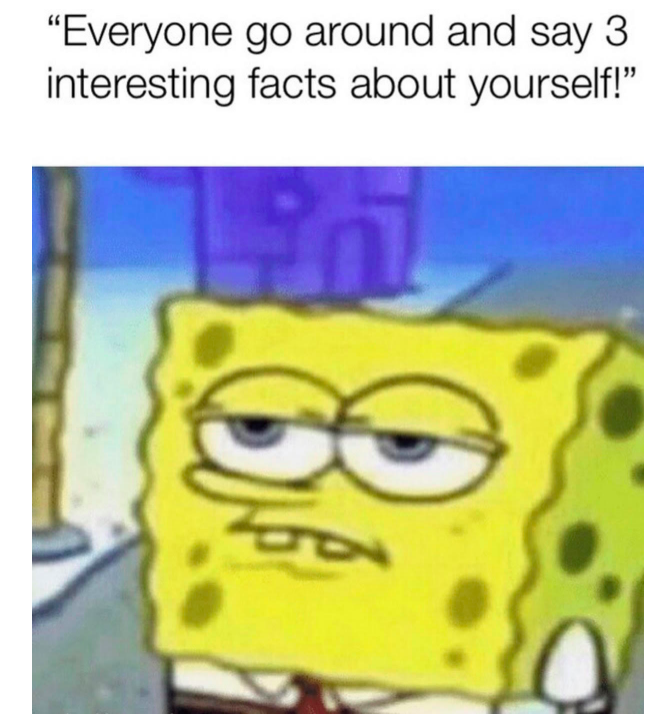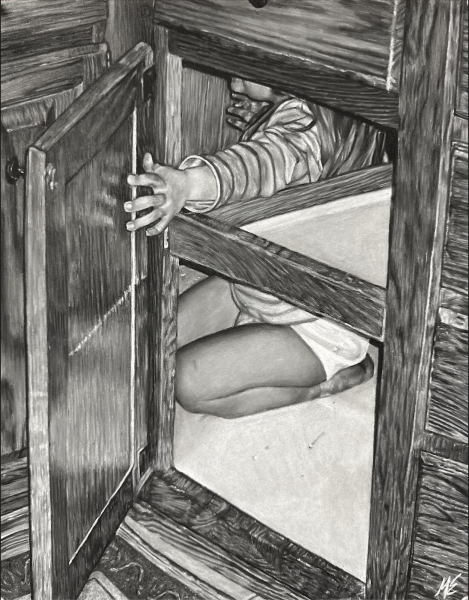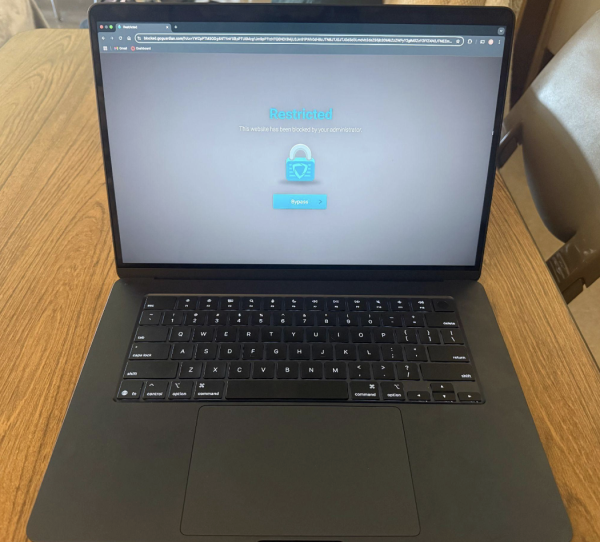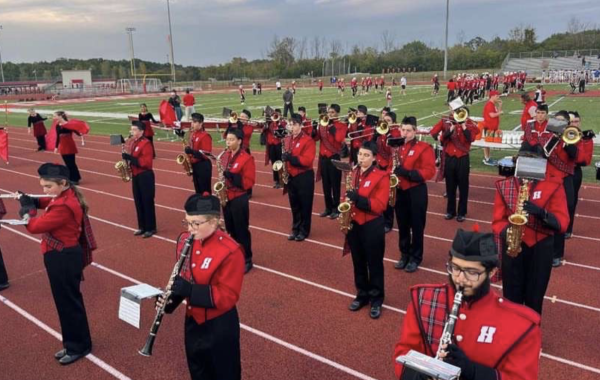Memes: Harmless fun or life lesson?
Mr. Recht reacts to a meme from a Homestead meme page.
According to Google, a meme /mēm/ is a humorous image, video, piece of text, etc., that is copied (often with slight variations) and spread rapidly by Internet users. By the late 1990s and early 2000s, memes took the Internet by storm.
These pictures with silly captions were sent as a humorous way to communicate and tell jokes. Similar to jokes, memes poke fun at certain topics or relatable situations, and often leave viewers saying “Oh yeah, that’s totally me!” As many things go on the Internet, however, memes can easily be misused or misinterpreted.
In the NPR podcast, “You Can’t Hit Unsend” by the Hidden Brain, it tells the story of a boy named William. In December of 2016, William, whose last name was not used, was accepted, early decision, to Harvard. He received copious amounts of financial aid, and accepted the offer to his dream school immediately. Soon after, he was added to group chats of other students who had applied early decision to begin getting to know his fellow classmates. What started with introductions and fun facts about one another, soon turned into memes being sent into the new chat.
Some members of the original Harvard chat group then decided to form another, smaller group chat would be made for “dank” memes, or more controversial memes, but students could only be in it if they sent a controversial or risky meme into the original group. William fell into a trap of wanting the approval from this peers, and started to send provocative, or otherwise inappropriate, memes, including jokes about sensitive subjects like rape, racism and genocide. By April, other students who had been accepted joined the group chat, and introductions began again.
Around this time William was sitting in class at his high school, ready to graduate in two months. His phone continued to go off, until his teacher allowed him to answer it. A panicked, urgent voice came through the phone as William was told devastating news. Harvard knew about the memes, and they knew that he was involved. He had to reply to the admissions office with a statement regarding his involvement with the meme chat. After that, they would let him know if his acceptance would be rescinded.
Nine days later, they responded. William, along with the nine others involved, would no longer be apart of Harvard Class of 2021. “Harvard College reserves the right to withdraw an offer of admission under various conditions including if you engage or have engaged in behavior that brings into question your honesty, maturity or moral character,” Harvard College said in a statement.
Devastated, William was thrown into an unwanted gap year, as April of senior year was too late to apply anywhere.
During the following year, William took time to reflect on his decisions, and when the time came to apply to colleges the next fall, he decided to be up front about his mistakes. All of his college essays addressed the scandal and his involvement in it. He applied to over a dozen schools. Only two schools admitted him and one waitlisted. After space opened up, William accepted the offer from the school where he was waitlisted. He will now graduate in 2022, one year, and many schools later than he had planned.
At Homestead, there are a couple accounts on Instagram made and used by students to create memes about school related topics. Some of these pages are private, and require the creators to accept follow requests. Others are public, and anyone can see them. While more used to exist, a few of the meme accounts have been deleted. The creators remain anonymous to a majority of the student body.
Students, and some teachers, have seen some of the memes from the Homestead accounts.

“I don’t really care [about this topic],” Logan Hess, freshman, said, “I have my own computer.”
Others found it more relatable. “This is funny. Very relatable,” Daniel Zelenovskiy, sophomore, said.
“That is my life at the end of first and second hour!” Jennifer Zortman, AVID and math teacher, said.

A few teachers reacted to the meme above about a usual game on the first day of school.
“It’s a pretty stock student response,” Brandn Lindsey, business teacher, said.
“I’ve only done that a couple of times,” Wolfgang Recht, math teacher, said with a laugh.
“Freshman year in one sentence! Literally every student’s nightmare, especially when they make you stand at the front of class,” Smeah Haider Shah, senior, said.
“I think it’s kind of mean because it’s down playing something that is very important to get to know your students,” Kathleen Solorzano, Spanish teacher, said.

“That is why I never leave my room during passing period!” James Davies, science teacher, said.
“This made me laugh out loud because it’s so accurate! We should seriously consider having a traffic monitor to help us move faster in the halls,” Isabella Brooks, junior, said.
Memes can be seen as harmless fun, but they can also have bad intentions. Being aware of how and when to use memes is important. With just one click of a button, something could go very right, or very wrong.
Editor Note: The Highlander Publications staff does not condone the use of memes for bullying or ill-intentioned acts.

Hannah Kennedy is a senior at Homestead and serves as editor in chief of Highlander Publications. She is going to study journalism in college at the University...









